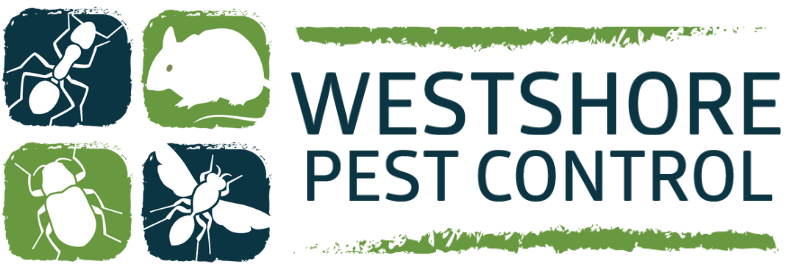Common Landscaping Mistakes That Attract Pests To Your Property
You’ve spent hours in your yard, planting beautiful flowers and sculpting hedges to perfection. Yet, despite your best efforts, you notice an increase in unwanted guests—pests that seem to have taken up permanent residence. Landscaping can indeed transform your property, but certain common mistakes can inadvertently turn your yard into a paradise for pests. Let's delve into these errors and how they invite unwanted critters, turning your dream landscape into a nightmare.
What Attracts Pests To A Yard?
One of the most inviting elements is overgrown vegetation. When bushes and shrubbery grow dense and unchecked, they create the perfect environment for various pests. Rodents, for instance, thrive in the cool, dark confines of thick bushes. Mosquitoes also find solace in such places, taking advantage of the humidity and lack of disturbance. Ticks, too, are often found lurking in these areas, ready to latch onto an unsuspecting passerby.
Tree branches that touch your house are essentially pest highways. Ants, squirrels, and rats use these branches to gain easy access to your home, bypassing your defenses with ease. Once inside, they can cause significant damage, not to mention the health risks they pose.
There’s nothing quite like the feeling of walking barefoot on a lush, green lawn. However, if that grass is too tall, it becomes a playground for ticks and fleas. They are not just a nuisance; they can carry diseases that affect both humans and pets. Additionally, tall grass and weeds provide excellent hiding spots for snakes, adding another layer of danger.
Water is a fundamental need for most pests, and standing water provides them with a constant supply. Poor drainage systems can lead to water pooling in your yard, creating ideal breeding grounds for mosquitoes. They are not just annoying; they can carry diseases like West Nile Virus and Zika.
Home Additions Gone Wrong
Neglected ponds and birdbaths are also common culprits. If these water features are not properly maintained, they can become hotspots for mosquitoes and other water-loving pests. Ensure that water is circulated and treated to prevent these issues.
Clogged gutters are often overlooked but can be a significant source of standing water. When gutters are clogged, water pools and creates perfect nesting sites for mosquitoes. Additionally, birds that nest in gutters can carry mites and lice.
Mulch is fantastic for maintaining soil moisture and controlling weeds, but too much of it can attract pests. Excessive mulch layers retain moisture, creating an ideal environment for termites, ants, and earwigs. They thrive in damp conditions and can quickly make their way into your home.
Placing mulch directly against your house's foundation is another common mistake. This practice can lead to termites and others finding their way into your walls. To avoid this, keep a gap between the mulch and your home's foundation.
Switching to inorganic mulch alternatives like gravel can help mitigate these issues. Gravel doesn’t retain moisture the way organic mulch does, making it less attractive to critters while still providing the benefits of weed control and aesthetic appeal.
Inappropriate Plant Choices
The types of plants you choose can significantly impact insect activity in your yard. Some plants, while beautiful, can be magnets. For instance, roses attract aphids, spider mites love marigolds, and certain ornamental grasses can harbor thrips. Choosing plants that are naturally pest-resistant can help keep your garden beautiful and pest-free.
Non-native species can disrupt the local ecosystem, making your yard more attractive to pests. Native plants are better adapted to the local environment and less likely to attract them.
Planting too closely is another mistake that creates humid microclimates ideal for some. Ensure adequate spacing between plants to promote air circulation and reduce humidity, making your yard less hospitable to them.
Unkempt Compost Piles
Composting is great for the environment and your garden, but improper management can have an adverse effect. When compost is not turned regularly, it can become a breeding ground for rodents, flies, and others. These critters are attracted to the warm, nutrient-rich environment of decomposing organic matter.
The location of your compost bin also matters. Placing it too close to your house can attract raccoons and skunks, which can then find their way into your home. Keep compost bins away from the house and ensure they are well-maintained.
Certain materials should not be composted as they can attract pests. Avoid adding meat scraps, oily foods, and dairy products to your compost pile; stick to plant-based materials.
Yard Clutter And Improper Irrigation
Decorative elements like wood piles can be charming, but they are also inviting. Stacked firewood provides an excellent habitat for termites, ants, and spiders, especially Black Widows. To prevent this, store wood piles away from your house and elevate them off the ground.
Unused items and yard debris can create hiding spots for rodents and snakes. Regularly clean up your yard and dispose of debris to eliminate these hiding spots.
Landscape timbers and borders, if not properly maintained, can harbor pests. Ensure these elements are in good condition and check them regularly for signs of activity.
Watering your plants is essential, but overwatering can lead to problems. Excessively moist soil attracts pests like slugs, snails, and fungus gnats. They thrive in damp environments and can cause significant damage to your plants.
Leaky sprinklers and hoses create puddles that attract pests like wasps. Additionally, these water sources can provide hydration for larger animals that can carry parasites into your yard.
Consider water-wise landscaping techniques, such as xeriscaping, which uses drought-resistant plants that require less water. These practices not only conserve water but also reduce the risk of attracting pests.
Are you tired of dealing with unwanted pests in your yard? Let Westshore Pest Control help you reclaim your outdoor space. Our team of experts is ready to provide a comprehensive consultation and thorough inspection to identify and eliminate the problems you may have. With our professional services, you can enjoy a beautiful, pest-free yard all year round. Don’t wait—contact Westshore Pest Control today for an estimate.

